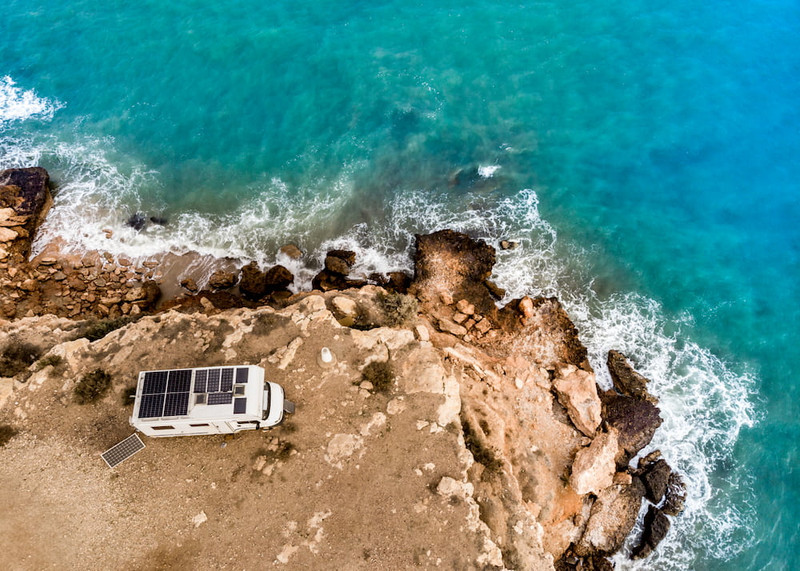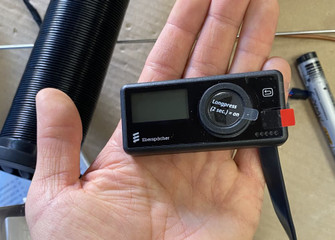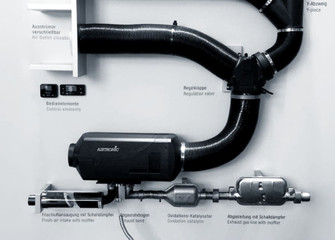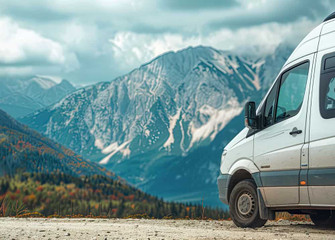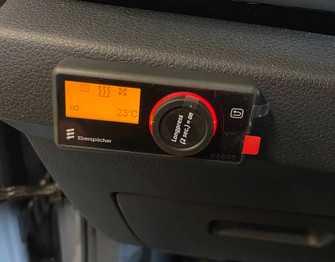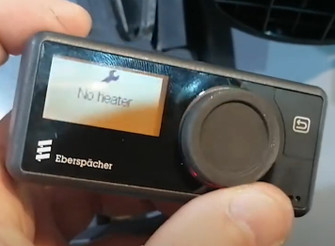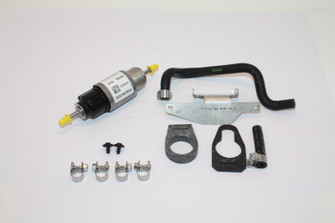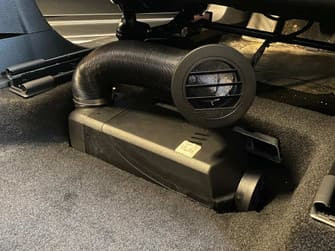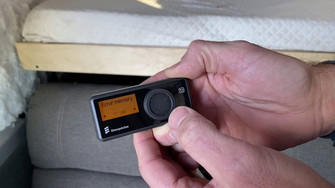How to build a sustainable RV with solar panels
Posted by Heatso on 2nd Apr 2023
If you're looking for a way to live sustainably and independently, then living in an RV with solar panels is a great option. With the right equipment and knowledge, you can harness the power of the sun to generate your own electricity, allowing you to live off-grid and in tune with nature.
GOING OFF-GRID: HOW TO BUILD A SUSTAINABLE RV WITH SOLAR PANELS
GOING OFF-GRID: HOW TO BUILD A SUSTAINABLE RV WITH SOLAR PANELS
If you're looking for a way to live sustainably and independently, then living in an RV with solar panels is a great option. With the right equipment and knowledge, you can harness the power of the sun to generate your own electricity, allowing you to live off-grid and in tune with nature.
Living off-grid in an RV with solar panels not only allows you to reduce your carbon footprint but it also enables you to explore new places. We believe eco-friendly vanlife is the future. That's why in this guide, we'll explore everything you need to know to build an eco-friendly RV with solar panels.
ON THIS PAGE
CHOOSING THE RIGHT RV AND SOLAR PANELS
Living off-grid in an RV with solar panels requires meticulous planning and dedication. The first step is to choose the right RV for your needs. When selecting an RV for off-grid living, you'll want to consider factors such as size, weight, and durability. If this if your first time choosing a motorhome, be sure to read our in-depth guide on choosing the best camper for van life.
Once you have chosen the right RV, the next step is to select the best solar panels for your off-grid RV solar system. There are three distinct types of solar panels, and they all come in a wide variety of cell chemistry and size. In our ideal solar panel guide you can find out about the pros and cons of rigid, flexible, and foldable solar panels, and learn about the important difference between mono- and polycrystalline panels.
TYPES OF SOLAR SYSTEMS FOR YOUR RV
There are two types of solar systems: factory integrated and aftermarket. Factory intergrated systems come with everything already set up, but it might not have the exact equipment that you wanted. Aftermarket systems allow you to get exactly what you want, but come with the additional hassle of planning and installation.
Portable Aftermarket Solar Systems
Portable aftermarket solar systems are a great option for those who want flexibility and versatility when charging their RV. These systems are usually composed of a portable power station and a solar panel that can be easily transported and quickly deployed when needed.
One excellent example of a portable solar system is the EcoFlow Delta Pro portable power station with the EcoFlow 160W foldable solar panel. Its impressive 3,600Wh capacity is perfect for powering all your electronic devices and appliances. The foldable solar panel is made of high-quality materials and is built to withstand harsh environments. It can charge the Delta Pro in just 4 hours of direct sunlight, making it a reliable and efficient charging solution for your off-grid RV adventures.
Integrated Aftermarket Solar Systems
Integrated aftermarket solar systems are designed to work seamlessly with your RV. They usually consist of an array of solar panels, a charge controller, an inverter, and a battery. Integrated systems are the most reliable option for getting every last drop of energy from the panels.
One great example of an integrated system is the EcoFlow 10kWh Solar Power Kit. EcoFlow designed their Power Kits to be easy to install, expand, and maintain. The central part of the kit is the 5-in-1 Power Hub, which replaces two MPPT controllers, a DC-to-DC converter, and an inverter charger. It can be installed in an RV or van to take it completely off-grid, with up to 15,000Wh capacity to power all of your AC and DC appliances.
POWER MANAGEMENT FOR OFF-GRID RV LIVING
Living off-grid in an RV with solar panels requires careful power management to ensure that you have enough energy to meet your needs. In this section, we'll go over some tips and strategies for managing your RV's power usage, as well as some energy-efficient appliances and electronics that are ideal for off-grid living.
Managing Your RV's Power Usage
When living off-grid in an RV with solar panels, it's important to be mindful of your power usage. This means turning off lights and appliances when they're not in use, using low-power devices whenever possible, and avoiding energy-intensive activities during times when your batteries are low. You can also install a battery monitor to keep track of your power usage and avoid overloading your system.
Energy-Efficient Appliances and Electronics for RVs
Choosing energy-efficient appliances and electronics is an important part of sustainable and eco-friendly vanlife. When selecting appliances for your off-grid RV, look for models that are designed specifically for RVs and that have a high energy efficiency rating. Some examples include LED lighting, Indel B low-power refrigerators, and portable solar-powered chargers like the cutting-edge EcoFlow River 2.
OTHER SUSTAINABLE PRACTICES FOR VANLIFE
Living sustainably in your RV is not just about having a solar-powered system. There are many other practices you can adopt to reduce your impact on the environment.
Managing Your RV's Power Usage
RV travel can be a sustainable option compared to other carbon-intensive lifestyles. One way to make RV travel more eco-friendly is to carefully select your destinations and focus on exploring your local area. Choosing an RV with lower fuel-consumption or making sustainable upgrades to your RV can also help greatly reduce your carbon footprint.
Bringing a bike on your RV trip can also help cut down on emissions and allow for convenient supply runs and day trips. Prioritizing reusable supplies over disposable ones and shopping locally when possible are additional ways to be kind to the planet while traveling in an RV.
Water Conservation Techniques for off-grid living
Water is a precious resource, especially when living off-grid. One of the best ways to conserve water is to be mindful of your usage. Taking shorter showers and turning off the water when you're brushing your teeth or washing dishes is a great start. Performing regular maintenance of your water system will ensure that you’re not wasting water unnecessarily.
Collecting rainwater for greywater purposes like washing clothes or dishes is a big step to becoming self-sustainable. You can set up the collector on the roof next to the solar panels, and route the water to your greywater tank, separate from the fresh water.
Finally, you could invest in water-saving products such as low-flow showerheads, faucets, and toilets. These products use less water than traditional ones and can help you conserve water while living off-grid.
CONCLUSION
Building an eco-friendly RV with solar panels and living off-grid requires careful planning, patience, and a willingness to learn. However, the benefits of living a more sustainable lifestyle and enjoying the beauty of nature are well worth the effort. Start your off-grid RV adventure today and make a positive impact on both your own life and the environment.
CONCLUSION
Building an eco-friendly RV with solar panels and living off-grid requires careful planning, patience, and a willingness to learn. However, the benefits of living a more sustainable lifestyle and enjoying the beauty of nature are well worth the effort. Start your off-grid RV adventure today and make a positive impact on both your own life and the environment.
